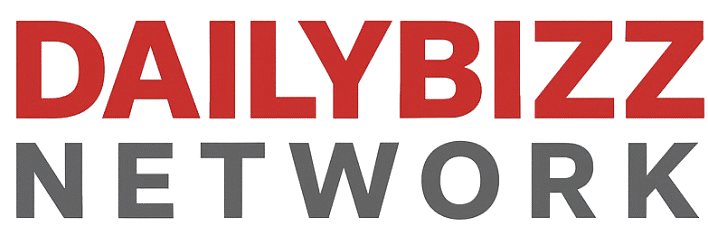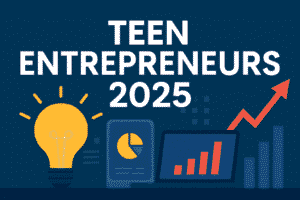Mark Zuckerberg: The Life, Vision, and Legacy of the Facebook

Introduction to Mark Zuckerberg
Mark Zuckerberg, the mind behind Facebook (now Meta), is a name synonymous with the evolution of social media. This Mark Zuckerberg biography explores every aspect of his life—from his childhood and Harvard days to becoming one of the world’s most powerful tech moguls. With billions of users interacting through Meta platforms today, Zuckerberg’s story is not just inspiring, it’s pivotal in understanding the 21st-century digital revolution.
Early Life and Family Background
Mark Elliot Zuckerberg was born on May 14, 1984, in White Plains, New York, to Karen (a psychiatrist) and Edward Zuckerberg (a dentist). Raised in Dobbs Ferry, a small Westchester County town, Mark exhibited a deep interest in computers from an early age. His upbringing in a supportive, education-driven household set the stage for his future innovations.
Zuckerberg has three sisters: Randi, Donna, and Arielle. The siblings grew up in a modest yet intellectually stimulating environment. Mark’s father introduced him to Atari BASIC Programming at the age of 10 and even hired a private tutor to support his son’s growing passion.
Education and Academic Achievements
Mark attended Ardsley High School before transferring to Phillips Exeter Academy, a prestigious preparatory school in New Hampshire. Known for his excellence in mathematics, astronomy, physics, and classical studies, Zuckerberg was a prodigy in both science and humanities.
At Phillips Exeter, he built an early version of a music player—Synapse Media Player—using artificial intelligence to learn users’ listening habits. Microsoft and AOL showed interest in the software, but Zuckerberg chose to pursue higher education instead.
In 2002, he enrolled at Harvard University, majoring in computer science and psychology. There, his ability to write sophisticated code earned him a reputation as a tech genius. In his sophomore year, he launched Facebook.
The Birth of Facebook
While at Harvard, Zuckerberg built a program called “Facemash,” which allowed students to rate the attractiveness of their classmates. Though the site was taken down by the administration, it showcased his programming talent and understanding of social behavior.
On February 4, 2004, Zuckerberg launched “TheFacebook” from his dorm room along with roommates Eduardo Saverin, Andrew McCollum, Dustin Moskovitz, and Chris Hughes. Initially restricted to Harvard students, the platform quickly expanded to Ivy League colleges and eventually to the general public.
By the end of 2004, Facebook had over one million users. Zuckerberg dropped out of Harvard in 2005 to fully focus on the platform. The company moved to Palo Alto, California, and attracted its first major investment from PayPal co-founder Peter Thiel.

Growth into a Global Tech Giant
Under Zuckerberg’s leadership, Facebook grew exponentially. The platform introduced major features like the News Feed, Timeline, Messenger, and Live Video. Its acquisitions—such as Instagram in 2012 and WhatsApp in 2014—further solidified its global dominance.
In 2021, Facebook was rebranded as Meta Platforms Inc., reflecting Zuckerberg’s vision to build the metaverse—a digital universe connecting people in immersive virtual spaces.
Meta now owns Facebook, Instagram, WhatsApp, and Oculus VR. With more than 3 billion users globally, Meta stands as one of the most influential companies in the digital ecosystem.
Leadership Style and Business Philosophy
Zuckerberg is known for his “move fast and break things” approach in the early days, which evolved into a more mature strategy as Meta grew. He is a hands-on CEO involved in product design, engineering, and long-term strategy.
His open-office working style and preference for flat organizational hierarchies encouraged innovation but also came under scrutiny for fostering intense workplace culture.
Controversies and Criticisms
Despite his success, Zuckerberg’s journey has been marred by controversies:
- Cambridge Analytica Scandal (2018): Data misuse of millions of Facebook users.
- Election Manipulation: Accusations of platform misuse during U.S. and international elections.
- Privacy Concerns: Frequent backlash over user data protection and algorithmic manipulation.
These issues led to multiple U.S. Congressional hearings where Zuckerberg had to testify about Facebook’s policies, raising questions about tech regulation.
Philanthropy and the Chan Zuckerberg Initiative
In 2015, Mark and his wife Priscilla Chan launched the Chan Zuckerberg Initiative (CZI)—a philanthropic organization aiming to “advance human potential and promote equality.”
The couple pledged 99% of their Facebook shares (then valued at $45 billion) over their lifetimes to support causes like education reform, healthcare innovation, scientific research, and criminal justice reform.
Personal Life and Family
Mark Zuckerberg married Priscilla Chan, a pediatrician, in 2012. The couple has three daughters. They are known for leading a relatively modest lifestyle given Zuckerberg’s billionaire status. He often emphasizes privacy and focuses on family time outside of his demanding professional role.

Net Worth and Financial Status
As of 2025, Mark Zuckerberg’s net worth is estimated at over $110 billion, making him one of the wealthiest individuals in the world. Most of his wealth is tied to Meta stock. His fortune has fluctuated due to market volatility and major Meta pivots like the metaverse shift.
Relationship with Other Tech Leaders
Zuckerberg shares both rivalry and respect with other tech titans. He has collaborated and competed with:
- Elon Musk – over AI safety and virtual reality(see: Elon Musk Biography)
- Bill Gates – mutual respect in philanthropy and education (see: Bill Gates Life Story)
- Jeff Bezos – for market share in digital advertising
His evolving leadership style is often compared to other visionaries, including Elon Musk.
Mark Zuckerberg’s Vision for the Metaverse
One of the most ambitious ventures under Zuckerberg is building the Metaverse—an immersive, interconnected 3D virtual space powered by AR and VR technologies. Meta is investing heavily in this domain through products like Horizon Worlds and Quest VR.
Despite skepticism, Zuckerberg believes the metaverse is the future of social interaction, work, and entertainment. It represents his next attempt to redefine the internet.

Awards and Recognitions
- TIME Person of the Year (2010)
- Forbes Most Powerful People
- Axel Springer Award (2016) for innovation
His recognition spans both business achievements and philanthropic efforts.
Impact on Society and Culture
Zuckerberg has shaped global communication, commerce, activism, and even politics. Platforms under his leadership have:
- Democratized content creation
- Enabled global movements like #MeToo and Black Lives Matter
- Connected families and businesses worldwide
However, this impact comes with responsibility—a topic Zuckerberg continues to address publicly.
Future Outlook
With ongoing developments in AI, VR, and decentralized web platforms, Zuckerberg remains central to the tech landscape. His strategic bets on long-term innovations, especially the metaverse, will likely define the next phase of Meta—and his legacy.
Conclusion
The Mark Zuckerberg biography isn’t just a story of coding genius or entrepreneurial success—it’s the blueprint of how vision and determination can redefine the world. As Meta navigates new challenges, Zuckerberg’s name will remain a cornerstone in the annals of tech history.
Whether praised for innovation or critiqued for ethical complexities, Mark Zuckerberg is undeniably one of the most impactful figures of our time.





